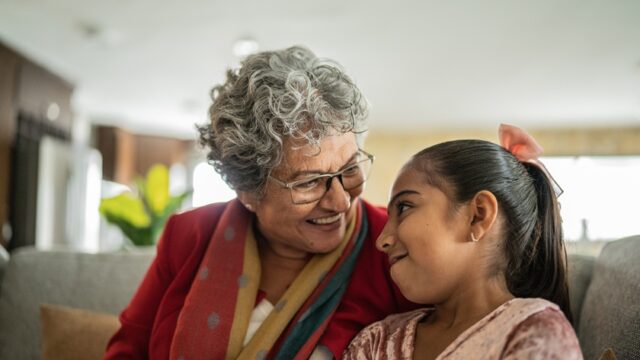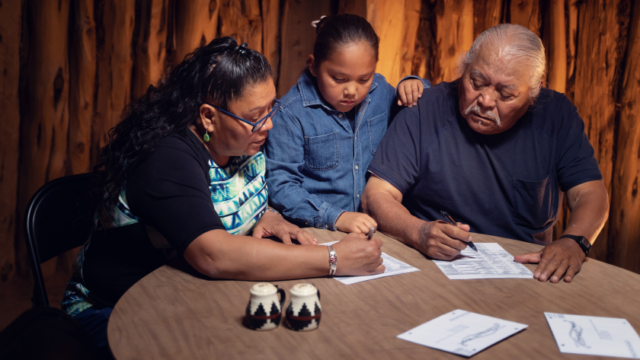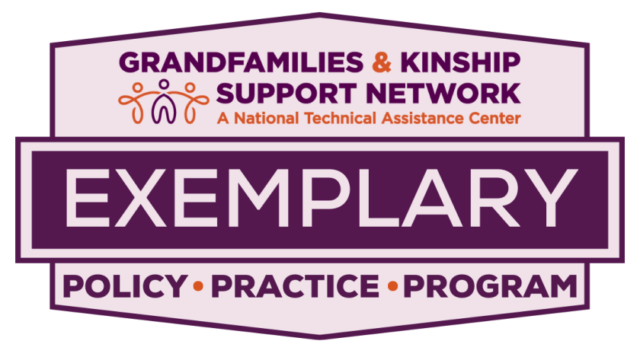
A Network Monthly Resource: October 2023
New responsibilities for children often bring new concerns for the future: What if something happens to me? Who will take care of the children? For older kin caregivers, this issue is even more pressing. You can help grandfamilies make the plans they need to put their minds at ease.
As your relationship develops, consider discussing long-term planning with kin caregivers.
Explore the tasks of estate planning by asking questions like: It’s common for many kin caregivers to think about plans for how to ensure children are cared for, if the caregiver becomes ill. Is that something you’ve thought about yet? Would you like to hear about local resources that can help?
As an organization, consider arranging for an estate planning expert to talk to kin caregivers. Meeting as a group can normalize this issue, generate questions, and provide an opportunity for mutual support.
Encourage kin caregivers to write a will.
Without a will, assets go to a person’s next of kin. For grandparents, that means that assets (including their home) would go to their adult child, not their grandchild.
Encourage kin caregivers to consider additional legal documentation of their wishes.
A living will or advance health directive names the person who will be responsible for medical decisions if the kin caregiver is incapacitated. These documents can clarify their wishes concerning the limits of care they want to receive. A financial durable power of attorney names the person trusted with financial decisions if the kin caregiver is unable to make them.
Be ready with suggestions for low-cost legal assitance in your community
GrandFacts fact sheets, organized alphabetically by state, tribe, and terrority, list resources for low-cost legal assistance to kin, where available. Further research can lead you to additional options. Kin caregivers may also want to explore FreeWill.com, which allows users to make a simple will for free.
Be prepared to help kin caregivers think about who will raise the children if they no longer can.
One of the first questions that comes up in long-term planning is who will serve as the child’s primary caregiver if the kin caregiver is unable to do so. This is often a difficult decision with no easy answers. Having a thought partner – like you – can help kin caregivers come to a decision that best meets the child’s needs. If developmentally appropriate, children can be part of this conversation. The tables on the next page present different approaches, depending on the caregiver’s existing legal relationship to the child.
Be aware of kin caregivers’ and children’s needs when adults face ongoing or serious illness.
Children in kinship families have already experienced at least one major life disruption and separation from their parents. Seeing a grandparent or other family member’s health decline over time may be stressful or worrisome for children. Check in with grandfamilies to ask whether children have shared concerns or whether their behavior has changed, as this can be a sign that they are struggling. You might help adults plan a conversation with children to talk through their concerns and come up with honest answers that can both inform and reassure children that they will “be okay.” Connect kinship families with local mental health resources to support children if needed.
For Kinship Families Outside of Foster Care:
| Arrangement | How a Kin Caregiver Can Create a Contingency Plan for the Child’s Future |
| Informal Agreement | Gather evidence of their relationship to the child (birth certificate, family records) and that they’re raising the child (school or health care records, public benefits they receive for the child, tax returns with the child listed as a dependent) Create a plan with the parents to decide where the child will go |
| Power of Attorney | Create a plan with the parents to decide where the child will go |
| Guardianship | Name a successor guardian if the state allows it |
| Adoption | Name a guardian in their will just like any parent May be able to name a “standby” guardian depending on the state |
For Kinship Families Inside Foster Care or Who Have Exited Foster Care:
| Arrangement | How a Kin Caregiver Can Create a Contingency Plan for the Child’s Future |
| Foster Care | Partner with their caseworker to identify another family member who can step in |
| Guardianship | May be able to name a successor guardian while exiting the foster care system |
| Guardianship Assistance Program (GAP) | The GAP agreement must be in place BEFORE getting a guardianship court order. Name a successor guardian (who does not have to be a relative or a licensed caregiver) to continue to receive monthly financial assistance through GAP |
| Adoption | Name a guardian in their will just like any parent May be able to name a “standby” guardian depending on the state |
| Adoption Assistance | Name a guardian, who may be eligible for assistance if the caregiver dies |


